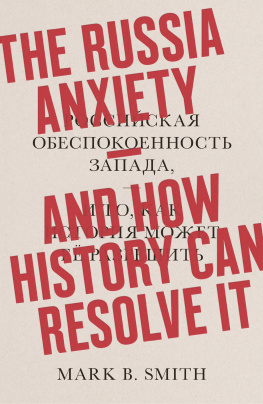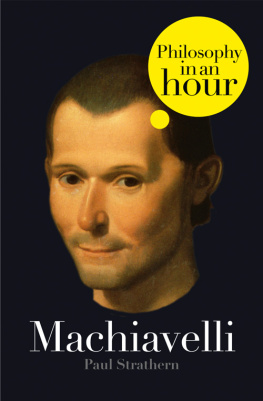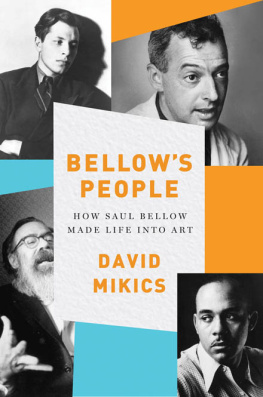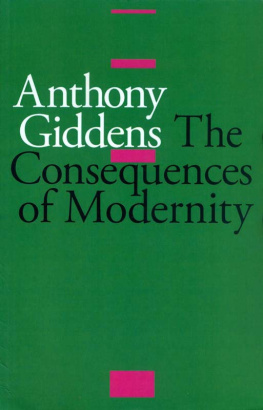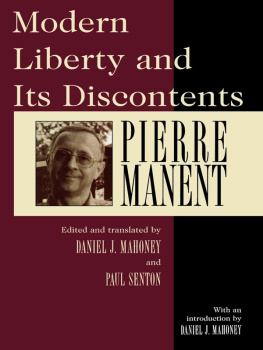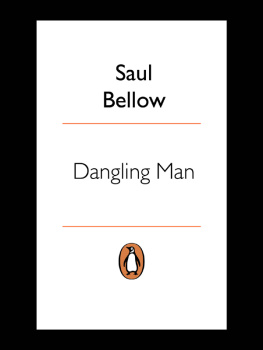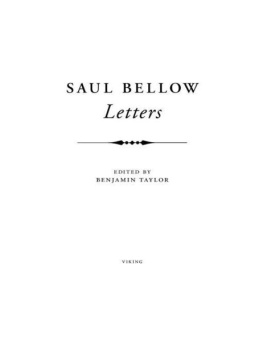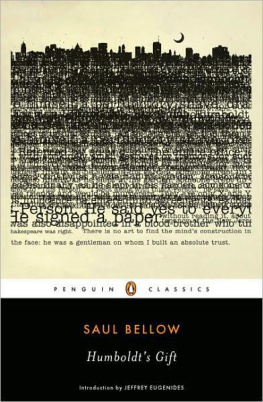Modernity and Its Discontents
Modernity and Its Discontents
Making and Unmaking the Bourgeois from Machiavelli to Bellow
Steven B. Smith

Copyright 2016 by Steven B. Smith.
All rights reserved.
This book may not be reproduced, in whole or in part, including illustrations, in any form (beyond that copying permitted by Sections 107 and 108 of the U.S. Copyright Law and except by reviewers for the public press), without written permission from the publishers.
Yale University Press books may be purchased in quantity for educational, business, or promotional use. For information, please e-mail (U.K. office).
Set in Adobe Garamond and Stone Sans types by Westchester Publishing Services.
Printed in the United States of America.
Library of Congress Control Number: 2015957288
ISBN: 978-0-300-19839-3 (cloth : alk. paper)
A catalogue record for this book is available from the British Library.
This paper meets the requirements of
ANSI/NISO Z39.48-1992 (Permanence of Paper).
10 9 8 7 6 5 4 3 2 1
To Susan
Life, Dance, Love
Fashion a teacher for yourself. Meaning to say, even if he were not suited to be a teacher to you, nevertheless, make him into a teacher for yourself so that you conceive of him that he is teaching, because of this you shall succeed in the study of wisdom.
Moses Maimonides, The Commentary to Mishnah Aboth
The educator himself must be educated.
Karl Marx, Theses on Feuerbach
Contents
Preface
Modernity is a problem. It is a word that means many things to many people. It is the name of both a process (modernization) and a state of affairs. The term first gained currency in the sixteenth and seventeenth centuries with the quarrel between the ancients and moderns over the proper models of artistic production, but it quickly morphed into a debate over a range of phenomena from philosophy to politics to economics. Modernity came to be associated with the sovereign individual as the unique locus of moral responsibility, the separation of state and civil society as distinct realms of authority, the secularization of society or at least the lessening of the public role of religion, the elevation of science and scientific forms of rationality as the standard for knowledge, and a political regime based on the recognition of rights as the sole basis of its legitimacy.
My own point of departure begins with modernity as the site of a unique type of human being, one entirely unknown to the ancient and medieval worlds that I want to call the bourgeois. I realize that the term bourgeois is contested and currently out of favor, but it is something I would like to resurrect. I use this term not in the Marxist sense to mean owners of the means of production but to indicate members of an urban middle class that began to think of itself as constituting a distinctive culture with a distinctive way of life and set of moral characteristics. Among the traits that characterize this bourgeois way of life are the desire for autonomy and self-direction, the aspiration to live independently of the dictates of habit, custom, and tradition, to accept moral institutions and practices only if they pass the bar of ones critical intellect, and to accept ultimate responsibility for ones life and actions. The characteristics attributed to this new kind of individual by writers as diverse as Machiavelli, Montaigne, Descartes, Hobbes, Spinoza, and many others included the qualities of generosity, courage, nobility, love of fame, and self-assertion that together constituted a new morality of the individual. These are traits of character that arose initially in the early modern period and are uniquely attached to the constitutional democracies of the West.
The character traits described above have come to be most fully identified with the American way of life. Our founding documentsthe Declaration of Independence and the Constitutiontake modern philosophy, the philosophy of individual rights, government by consent, and the sovereignty of the people as their point of departure. Our way of life virtually forces us to ask whether a regime founded upon such a philosophy can long endure. The form of government devoted to the protection of life, liberty, and the pursuit of happiness is without doubt one of the most profound and precious accomplishments of modernity, and yet it leaves, perhaps deliberately so, many questions unanswered. What is happiness? Is it to be discovered more in the chase or in the catch? Is happiness equivalent to pleasures of the moment or in the experience of some higher order goal like virtue or contemplation? Is the idea of the pursuit of happiness a universal aspiration of all human beings or does it address the needs of a specific and perhaps very limited sector of humanity?
No pain, no gain, as the saying goes. Our political regimethe regime dedicated to the pursuit of happinessis beset with dissatisfaction. It may seem strange that the most powerful and prosperous society that has ever existed should be given over to fits of self-doubt, but as a famous economist once said, there is no such thing as a free lunch. The quest for autonomy has been depicted by its critics as a form of subjectivity or ruthless aggressiveness used to control nature and dominate others; the claims made on behalf of trade and commerce have been depicted as a defense of rapacious capitalism and mindless consumerism; even the achievements of democracy have been presented as a sterile wasteland of philistinism and conformity. The thesis that I develop in this book is that modernity has created within itself a rhetoric of antimodernity that has taken philosophical, literary, and political forms. How did the idea of the bourgeois, once considered virtually synonymous with the free and responsible individual, become associated with a kind of low-minded materialism, moral cowardice, and philistinism? It is this dialectic that I hope to explore.
Any account of modernity potentially pulls in endless directions with many detours and pit stops along the way, but for reasons discussed below, I begin with Machiavelli. Machiavellis claim to have mastered fortuna and discovered new modes and orders put us on the road to the idea of progress as the master trope by which modernity understands itself. The idea of progress is what principally defines us as moderns different from them as premoderns. The ancient political philosophers and historiansHerodotus, Thucydides, Plato, Polybiusall conceived of history as an endless cycle of regime change that followed a more or less eternal order. History was for them a matter of reshuffling a fixed deck. Modernity began with the audacious idea that we could break this endless pattern of birth, growth, and decay and, what is more, do so not through divine or supernatural intervention but through our own unaided efforts. Machiavelli and those who chose to follow him saw politics as a work of art, a testimony to human initiative and creativity.
The idea of progress was given classic expression by the thinkers of the EnlightenmentDescartes, Hobbes, Spinoza, Kant, and otherswho saw in the idea of progress the promise of an unprecedented form of liberation. The idea of progress applied to the life of the mind in its quest to achieve certainty and overcome paralyzing bouts of doubt and despair, to the life of society as it seeks to banish or abolish popular forms of ignorance and superstition in order to achieve a stable, balanced, and prosperous civil order, and finally to history as a whole in humankinds ascent to a utopian vision of material well-being and peace among the nations as overseen by a system of international law. Modernity considered here is hardly all of a piece. It might be more accurate to speak of modernities. It includes everything from liberal modernity that values tolerance, commerce, and self-discovery to the more ambitious plans for large-scale social engineering, achieving of rationalist perfectionism, and the transformation of the nation-state into a world federation or even a world state.







